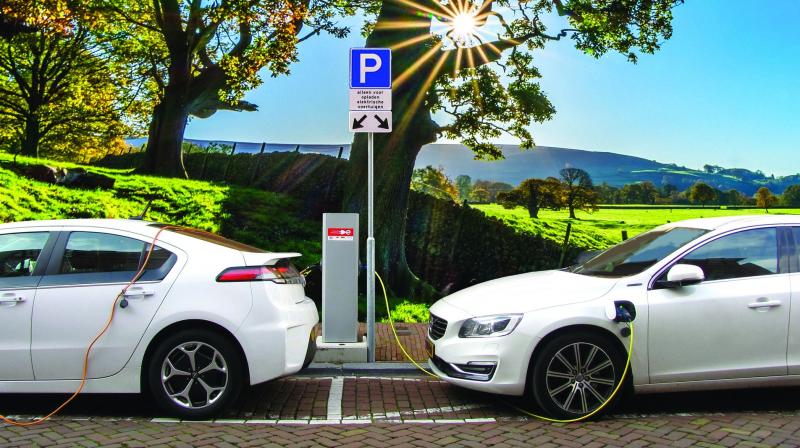Electric vehicles: The road ahead
An important part of the recent Union Budget, electric tourism may have a great future in India.

They have been in the news for quite some time now, but we still don’t see enough of them on Indian roads. Electric vehicles (EVs), if coupled with the right infrastructure, present a sustainable solution to air pollution caused by the burning of fossil fuels by petrol and diesel vehicles. Just imagine a city that operates solely on electric cars charged using solar energy.
While a host of roadblocks make this a distant reality, Nirmala Sitharaman’s recent Union Budget has definitely recognised the importance of electric vehicles in the country. Phase II of the FAME India Scheme, which will benefit everything from the adoption to the manufacturing of EVs, was re-emphasised during the proceedings. Additionally, the Finance Minister announced a deduction on income-tax interest on loans to purchase electric vehicles.
So now that there has been a push by the government, how are consumers, service providers and car manufacturers reacting to it? If you take big companies, they have already been investing heavily in answering the ‘what beyond fuel?’ question. Take, for instance, the case of Volvo, which a presence in terms of hybrid electric vehicles in India. Sudeep Narayan, Director, PR and Corporate Communisvvcation, Volvo Car India, while recognising the importance of a favourable incentive scheme for plug-in hybrids and full electric vehicles, points out, “FAME II is applicable on a few categories of vehicles only. What the industry needs is a technology-agnostic incentive scheme that provides benefits based on carbon emissions.” He also points out the ‘chicken and egg’ situation as to what should come first in India — EV infrastructure or electric vehicles.
Varun Gupta, a resident of North Delhi and an EV enthusiast, agrees, “I wanted to buy the Hyundai Kona, the first fully-electric vehicle to be launched in India. However, as compared to hybrids, it has been priced quite expensively. So even by waiving off the interest on loans, it doesn’t help much if the vehicles are so overpriced.” He considers the Indian scenario incompatible with electric vehicles, saying, “for example, how will people even charge their vehicles, as most car-owners park on the roads (and not their houses), where charging stations are not feasible. Only the super-rich will ever use EVs.”
The electric-vehicle push over the past few years have also led to the emergence of various startups and service providers. These, on the other hand, have been welcoming the move. Sandeep Mukherjee, COO and co-founder of B:Live, which provides electric bicycle tours in Goa, comments, “What the government has offered is a clear incentive that lowers the cost of ownership of the vehicle. This will lead to higher adoption of electric vehicles. So it will benefit us as a category.”
He also states, “we can pass on some of that benefit to the consumer through lowered pricing.”
Padmanabhan Balakrishnan, co-founder and COO at Vogo, which provides scooter rentals, similarly states, “The 10,000-crore budget for FAME II, the reduction in GST for EVs, and the focus on ensuring high-quality vehicles will accelerate the push for clean mobility in India — helping us add significantly more electric vehicles to our fleet.”
This way, while many players have criticism to offer on the future of EVs in India, despite the government decision, while others see it as a great opportunity. Whether the road ahead is bleak or a splendid eight-lane highway, only time will tell.

